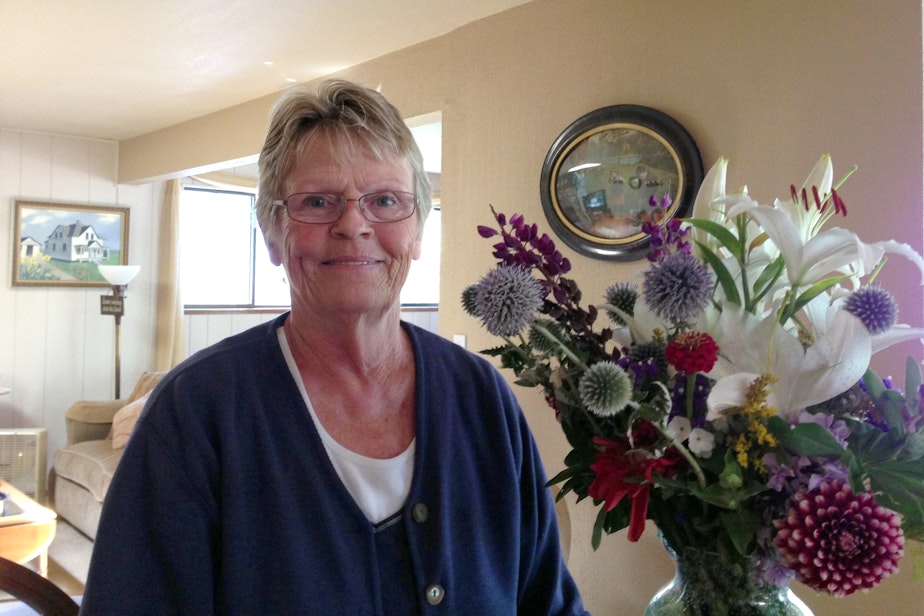Medicare Wants To Pay Doctors For End-Of-Life Counseling

For Jennifer Calnon, end-of-life discussions boil down to this: “This is my life,” she says. “I should be the one who gets to make the decision.”
Calnon, of Mountlake Terrace, is 67 years old and fairly new to retired life. These days she has a list of projects she wants to finish. Like finishing the pillowcase she started years ago for her daughter’s birthday and cleaning out her junk room.
“It’s either that or my final revenge, which will be making my children clean out all my junk,” she says laughing.
One thing Calnon is leaving in order is her advance directive. She had it drawn up, along with her will several years ago. She had given a copy to her doctor’s office and didn’t think much about it until last week. That’s when her doctor asked whether the document still matches how she feels.
Paying doctors for having end of life discussions was originally part of the Affordable Care Act. But it got removed when Republican Sarah Palin said it would lead to what she called “death panels.” As a result, end-of-life conversations are rarely discussed at doctor visits.
Physicians like Dr. Jae Sim applaud Medicare’s latest proposal to pay doctors for end-of-life discussions. Sim feels strongly about having end-of-life talks that she does it whether or not Medicare reimburses her.
“I believe this is a critical part of how I help a patient,” she says.
Sim is a family practice physician at Edmonds Family Medicine. She is also Calnon’s doctor. “Every person has a right to have their choices honored at the end of life,” she says.
But it’s not something that can be done in a 15-minute office visit.
Sim says Medicare’s plan would encourage more doctors to take the time with their patients and find out their wishes. She says having an advance directive is like have an emergency preparedness document for a medical catastrophe.
Read further: Honoring Choices PNW initiative
Calnon, for example, told Sim she didn't want to be kept alive on machines in a coma.
“I’m not saying do not resuscitate if you have a heart attack, but if it’s something where I have no quality of life, then I don’t want to be kept alive,” Calnon said.
Calnon’s wishes clash with her religious upbringing. But she says she’s seen too much in her family to know what she doesn’t want when her time comes.
“My family always said that God doesn’t give you more than you can bear, but I’ve seen people bear some awful things, so I don’t believe they should have to do that, that kind of thing.”
Calnon says prolonging death prolongs pain and suffering. “Not just for the person,” she adds, “but for everyone. I don’t believe you should put your family in financial ruin.”
Calnon says she feels better having this conversation with her doctor since her three children have avoided the subject. But Sim says now is the time.
“If I can have this conversation with a patient when they’re well, when they’re able to make those decisions for themselves, and when they’re thinking clearly, that makes a difference,” she says. “We all make decisions best when we’re calm and healthy.”
America’s aging population is growing and living longer, often with multiple chronic conditions. Sim says many of her patients take comfort in having a written plan for their caregivers and families when they’re not able to speak for themselves.
She says once you have your plan in writing, talk to the person who would be your advocate about your wishes and share that information with your doctor.
“You have a choice, you have a voice at the end of your life in how you’re cared for by your doctor or loved ones,” Sim says. “Put it in writing.”

